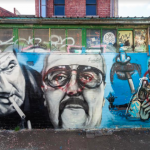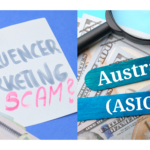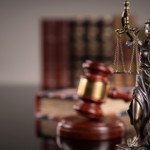A Crime of Compassion: An Interview With Green Light’s Nicholas Morley
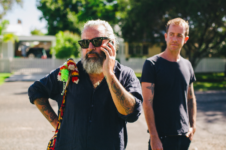
Against the backdrop of the ACT having just passed laws to legalise cannabis use, and the pending three year anniversary of the government’s highly derided cannabis medicine licensing scheme, comes a documentary that deals with the reality of medicinal cannabis patients on the ground.
Green Light tracks Nicholas Morley and CBD Luke as they provide those in need with organic, whole plant cannabis medicines, which is the norm in this country, as legal medicinal cannabis is wrapped in so much red tape, it’s nearly impossible to obtain, so those suffering must turn to the black market.
Both Luke and Nicholas have lived a life. Morley had a three decade-long career in the fashion and music industries that saw him found cult fashion label Buddhist Punk. However, these days, the pair are taking the compassionate route: risking their freedom to help others.
And not only does Green Light tell a compelling story, but it’s been beautifully shot in the NSW Northern Rivers region by director Ned Donohoe. And the patients that the documentary engages with, make the viewer realise just how valuable the work is that Nicholas and Luke are carrying out.
Legal, but inaccessible
As Green Light points out, cannabis was made illegal in Australia in 1928. And the two best known molecules present in medicinal cannabis oils are CBD and THC. In the mid-1990s, a system was discovered in the human body, which responds with these molecules and promotes health.
Over the last decade, the awareness of the benefits that medicinal cannabis can bring to those suffering serious conditions grew to such an extent that the federal government passed laws in 2016, which established a medicinal cannabis licensing scheme.
Under the oversight of the TGA, this scheme came into effect on 30 October 2016. Although, three years on, the Office of Drug Control has only issued 20 medicinal cannabis licenses. And what’s legally available is a small trickle of local product and exorbitantly priced imported medicine.
As the Medicinal Cannabis Users Association of Australia related last month, there have only been 14,000 cannabis prescriptions issued since the scheme has been in operation, while a modest estimate of the number of people using cannabis medicine in this country is 100,000 patients.
The path with heart
So, right now, the medicinal cannabis gatekeepers in this country – whether that be the TGA, politicians, the pharmaceutical industry, or the prejudice some medical practitioners harbour about the plant – are withholding relief from the sick and dying.
And Nicholas and Luke have stepped forward to tell their story, which is similar to many other Australian cannabis oil producers, who’ve found themselves in the position of being able to help the sick, when no one else is prepared to.
Sydney Criminal Lawyers spoke with Nicholas Morley about how he came to take this compassionate path, his take on the local legal medicinal cannabis system, and why it shouldn’t be that good people have to break the law in order to benefit their fellow human beings.
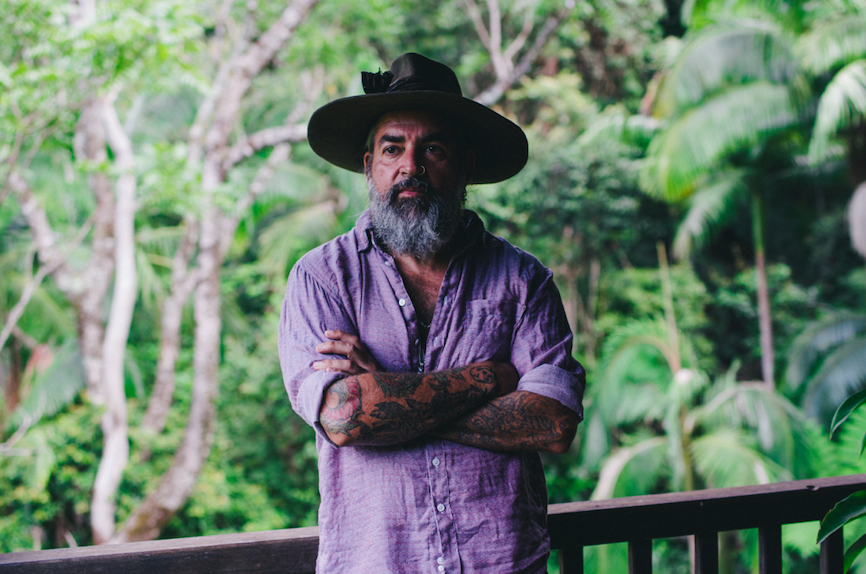
Firstly, Green Light is a new documentary that follows you and your partner Luke as you provide sick people with cannabis medicine. Prior to this vocation, you actually had a successful career in fashion.
Nick, how did you find yourself helping patients in this way? And as there are risks involved, why would you say you do it?
I’d had quite a long career. I was a hairstylist, a makeup artist and a designer. Then I went back to hair and makeup. I did a whole bunch of different things.
I was living in Bali. Then I moved back to Australia. I spent a year in Sydney and then I moved to Byron. And when I moved there, I was really depressed. I’d had a bad breakup. And things just went horribly wrong.
I met Luke, and he helped me deal with that depression. One of the ways that we did that was by using CBD.
Once I got myself well, I had an epiphany. I thought, I can’t go back to working in fashion: you’re either helping people sell clothes that will end up as landfill, or creating images that are there today, and gone tomorrow. And I needed to do something with more substance.
I’ve always had a compassionate side to me. And I decided I wasn’t going to do anything unless it was helping people. So, providing CBD was one way of doing that.
You’re providing high quality organic oils to patients for a range of ailments. What are some of the conditions that you’ve been helping people with?
From extreme cases of cancer – like pancreatic cancer, I’ve got one guy who was given three months to live, and that was four years ago – all the way down to depression to motor neurons and to Parkinson’s.
There are so many different conditions, it’s crazy.
You’ve just touched on this. But, I’d like to ask you, as cancer is a condition that comes up a number of times in Green Light. Nicholas, in your understanding, can medicinal cannabis turn cancer around?
Yes. It can halt it. And it can turn it around, absolutely. It doesn’t work in all cases. But, I’ve seen it work a lot of times. It’s been those times when nothing else has worked. They’ve tried that, and it’s worked.
It’s not a cure. I don’t call it a cure for cancer. But, it can definitely halt it, and it can prolong people’s lives.
And it’s a fantastic tool for helping people to get through all the side effects of having cancer, whether that’s the pain, or the effects from chemotherapy and radiation.
The Narcotic Drugs Amendment Bill was supposed to set up a legal cannabis medicine supply chain. How would you describe the system this legislation established?
A broken joke. We call it the scenic route. It’s doesn’t work. It wasn’t designed to create easy access for patients.
In fact, it has made things more difficult. I don’t think the government had people’s best interests in mind when they were putting it together.
So, you’d say it wasn’t a serious attempt at making medicinal cannabis available for patients who need it?
No, not at all. If they wanted to get serious about making it available, they’d just legalise it across the board and let people do what they want with it.
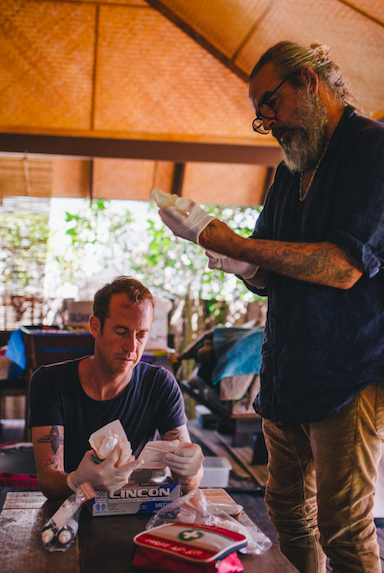
The documentary points out that what was actually legalised in this country were pharmaceutical isolates of cannabis for medicinal use.
Now, what you’re providing is whole plant medicine. How do these two different forms of medicinal cannabis stack up against each other?
There’s no comparison. I’m a firm believer that the most important thing on this planet is soil and its quality. That’s where all our life force comes from.
So, if you’re eating good food that comes from good soil, you’re going to get well. It’s always going to taste better. It’s going to be better for you.
If you eat food that’s grown hydroponically, there’s not a lot of nutrients in it, or they’re nutrients that they’ve actually put in. It’s the same with cannabis medicine.
When cannabis is grown outdoors organically, it can be incredibly powerful, and a fantastic healing plant. But, if it’s not grown right, and if it’s not treated right, it’s nowhere near as good.
So, we won’t provide people with products that aren’t grown outdoors organically.
There are also a lot of concerns around isolates. I don’t think it’s necessary to isolate things. The only reason that they’re isolating it is so they can make more money out of it. And that’s not what this is about.
If the government had everybody’s best interest at heart, we’d be looking at this seriously. Australia actually has the perfect climate for growing cannabis. We could do two turnaround crops a year outdoors. There’s no need for any indoor farming.
So, how did it come about that you made Green Light? And as what you’re doing is illegal, why’d you go public like this?
We came to make it because I’d seen another documentary that Ned Donohoe, the director, had made. It was about another cannabis provider, Andrew Katelaris. And I thought it was a very good short piece. It’s called The Pot Doctor.
It just happened to be that my nephew knew Ned. He connected us, and I had a chat with him. I told him it was a really good piece and if he was interested in doing anything else, let me know. We ended up catching up about a year later, and we decided to make this documentary.
In regard to the legality of it all – and the risks involved – to be perfectly honest, the best place to hide is in plain sight. The other thing is, what I am doing is a human rights issue. I’m not some sort of drug dealer.
And lastly, I saw Green Light over the weekend, and found it engaging. Nicholas, how did you feel about the documentary when you saw it? And why would you say people should get out and see it?
We’re happy with the results. If people are interested in this topic, it’s a good way of looking at it. It’s an interesting human story. Luke and I both have stories to tell. My past is such a contrast with what I do now.
It’s a nice story of human compassion. There are things that Luke and I have done in our lives that we’re not that proud of. There have been a few dark days. And that comes through in the film.
This is our chance to give back and help people. That feels good. We both get high off helping people.



